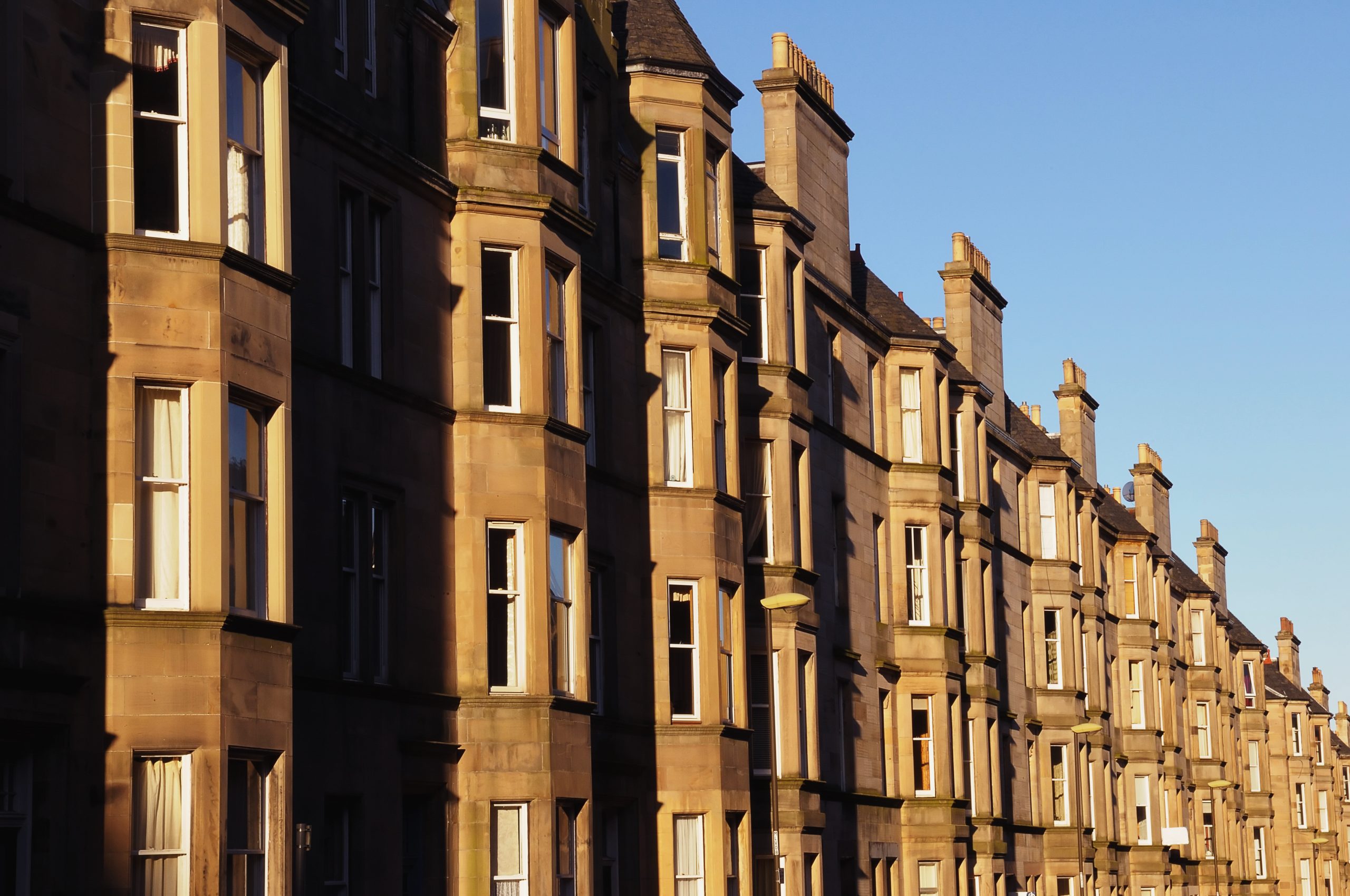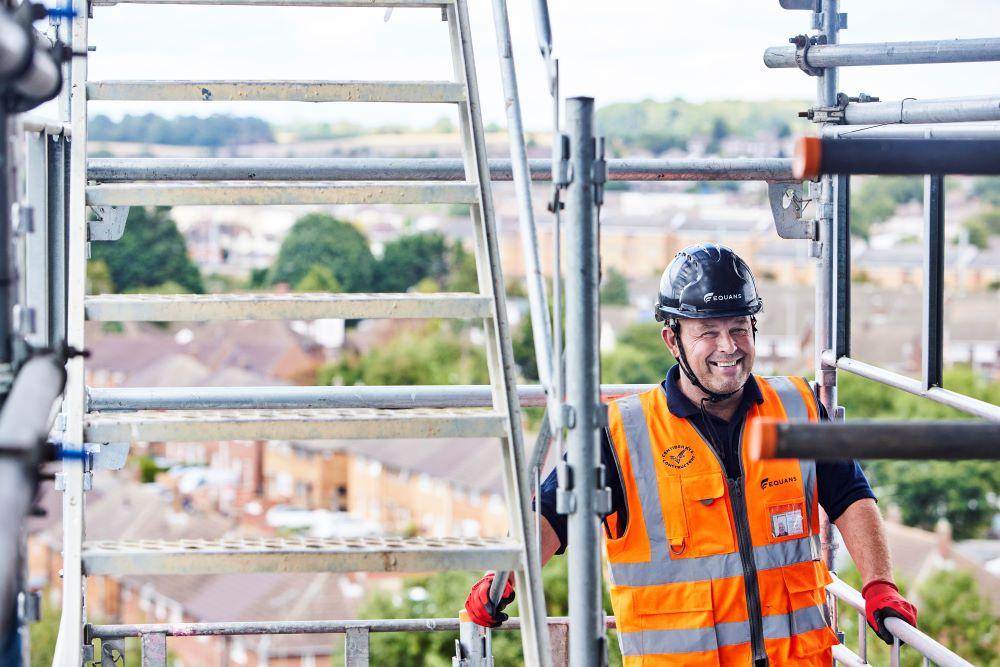University of Strathclyde to Accelerate Net Zero Buildings for Cities

The University of Strathclyde is a partner in a new initiative to significantly reduce carbon emissions from high density housing in UK cities and towns.
The transformational Centre for Net-Zero High Density Buildings will test new prototypes and retrofit buildings with low-carbon materials, heating and cooling systems, and energy storage technologies.
The testing grounds will be in Edinburgh and Glasgow, which have the UK’s highest proportion of flats, including historic stone tenements, modern flats, and converted commercial premises.
Significant investment will be required to meet net zero goals
It’s estimated the combined city regions may require around £35 billion investment for low-carbon retrofitting and construction over the next 25 years, to help achieve net zero goals.
Researchers from the Department of Architecture and the Energy Systems Research Unit (ESRU) within Mechanical Engineering at Strathclyde will examine occupant needs and behaviour, and will be responsible for performance modelling and data analysis.
The scheme will target buildings that typically house some of the UK’s lowest earners, including many public sector and key workers. These groups tend to spend a higher proportion of their income on energy bills, yet are more likely to experience health problems associated with cold and damp housing.
Professor Lori McElroy, Chair in Smart Resilient Cities at the University of Strathclyde, is leading the investigation into understanding how the needs of occupants influences their behaviour and said:
“This project is an exciting opportunity to explore the range and scope of approaches needed to deliver a fair and just transition to net zero, delivering innovation while protecting society from potential detrimental impacts.”
Dr Nick Kelly, co-director of ESRU, leading the modelling and data component of the project, said: “This new, multi-organisation, multi-disciplinary centre allows us to tackle a huge barrier to the UK’s net zero ambitions – the decarbonisation of heating in our housing sector, whilst improving health and reducing energy costs for citizens.”
Led by the University of Edinburgh, the research partnership also combines the Universities of Glasgow, West of Scotland, Edinburgh Napier University, and BE-ST – Scotland’s construction innovation centre.
The Centre draws together £5.6 million investment from industry, education, the public sector and the community, with a £4.5 million funding boost from UK Research and Innovation (UKRI).
Flats and urban commercial buildings produce one fifth of the UK’s carbon emissions
It is estimated the UK’s six million households living in flats, combined with urban commercial buildings, produce around 20 per cent of the country’s annual carbon emissions.
The scheme’s recommendations will be shared with industry and government, to inform how buildings across the country are retrofitted to achieve net zero targets.
Principal and Vice-Chancellor of the University of Strathclyde, Professor Sir Jim McDonald, said:
“This new Centre has the potential to deliver new energy innovations, including supporting lower bills and improving health across high density urban communities, to create a lasting legacy.”
The initiative is one of several created by UKRI to boost green manufacturing, jobs and skills across the country, known as Green Economy Centres.
Science Minister, Lord Vallance, said: “By harnessing world-class research, we can improve our understanding of the environment, help everyone live healthier lives, and build a greener, more resilient economy for the benefit of all.”

